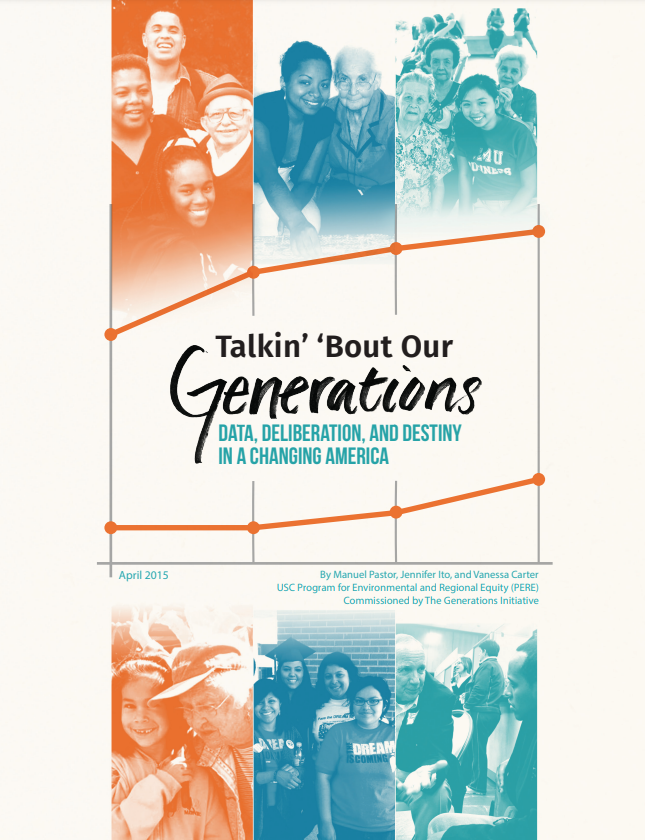
From 2008 to 2019, the USC Equity Research Institute (ERI) published reports under our previous name, the USC Program for Environmental and Regional Equity (PERE).
April 2015
By Manuel Pastor, Jennifer Ito, and Vanessa Carter
Commissioned by The Generations Initiative
The nation is a-buzz about its majority multi-ethnic future. By 2044, the U.S. is predicted to become a majority-minority nation. Since 2011, the majority of births have been to people of color, and by the end of the decade, the majority of youth will be of color. But across the nation, regional stakeholders and decision makers are asking what this means for the future. What is the impact and how should they respond?
Demographic change rarely proceeds without tension—just think of Phoenix and Ferguson. A more subtle but pervasive response comes in the form of public disinvestment (e.g., in public education). Older and politically powerful generations no longer see themselves in the younger generation and are pulling up the public-spending drawbridge. The result: Under-educated and under-prepared youth will not be able to support the nation’s tax base, assume the roles and responsibilities of retirees, and more. The failure to invest is bad for all.
Bridging the racial generation gap is about the American future. It will require innovative organizing, creative policies, and hard-nosed politics, but it will also require a backbone of strong, accurate, and eye-opening data read through an equity lens. We suggest that the racial generation gap is too often approached from a fear-based reality instead of a fact-based one.
In this report, we take a data-driven approach. With such a foundation, we can come to new understandings of the challenges, start reconnecting across differences, and work together toward the possibilities ahead.
The report offers:
- A look at the racial generation gap, nationally, and the consequences for all of us if we leave it unbridged.
- Numbers and narratives for three regions—Fresno, CA; Charlotte, NC; and the Twin Cities region, MN-WI—each illustrating a common type of demographic change happening in other regions across the nation.
- Conversational frames in which to set demographic profiles so as to have values-based conversations as well as two areas towards which the data points: metrics and shoring up civic engagement.
We hope that what we have offered will enable others to consider and compile data profiles and data systems that can become a backbone for conversations that bridge across race and generation.



